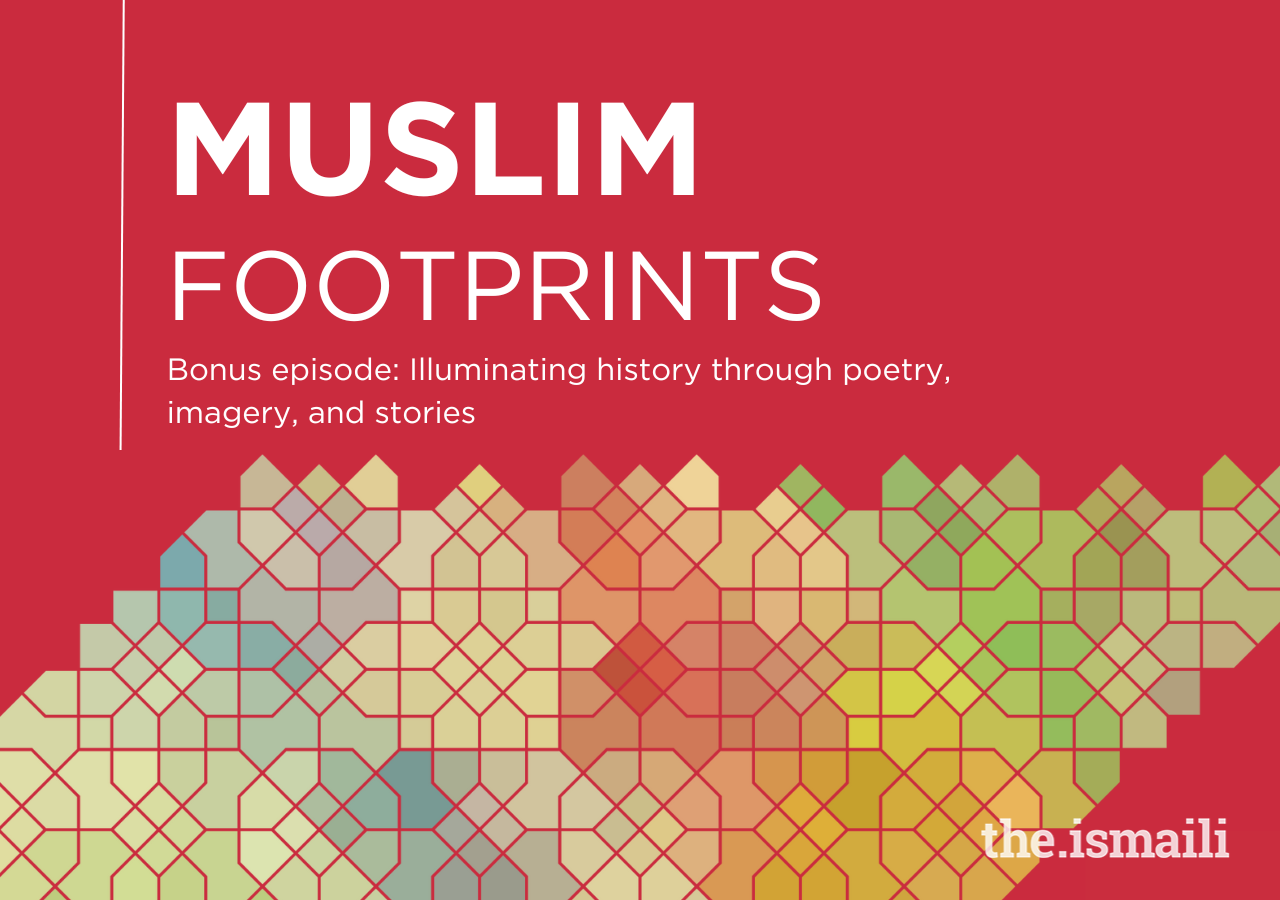From the founders of the faith to empire builders, from Islam’s spiritual underpinnings to its enduring contributions to culture, we've covered a lot of ground on Muslim Footprints!
We’ve found that our conversations and the topics we cover have led to fascinating angles or themes we didn't want to lose, so here we bring you some additional insights from our guests. In this session:
- Alice Hunsberger brings us a wonderful recitation and analysis of one of Nasir Khusraw’s poems;
- Stephen Burge reveals how he picked the images for his book about Prophet Muhammed (peace be upon him and his progeny);
- Shainool Jiwa gives us a quick overview of how the different interpretations of Islam came to be, and tells us about a walking tour that the IIS organises in Tunisia every year;
- Reza Shah Kazemi eloquently explains the connection between intellect and divine revelation, and;
- Bill Granara tells us how Sicilian poet Ibn Hamdis spent his final days, and we wonder where he may have been buried!
In an interview with American public radio station NPR in 2006, Mawlana Hazar Imam asked: “What is the definition of an educated person today? Does that definition include some basic knowledge about the Islamic world or not? If it doesn't, perhaps that needs to be corrected.”
“The knowledge of the different civilizations of the Islamic world, the knowledge of the pluralism of that world, the knowledge of the plurality of interpretations of Islam, of the languages of Islam, of the demographies of Islam is very, very shallow indeed. And I think that is a significant contributor to misunderstanding.”
Making knowledge about Islam and its rich heritage available and accessible is a key goal of The Ismaili digital platforms. Thanks for reading, listening, reading, and watching our content — we hope to bring you much more.
---
Listen now to this episode and subscribe to Muslim Footprints on your favourite podcast platform including Apple, Spotify, and Google.








